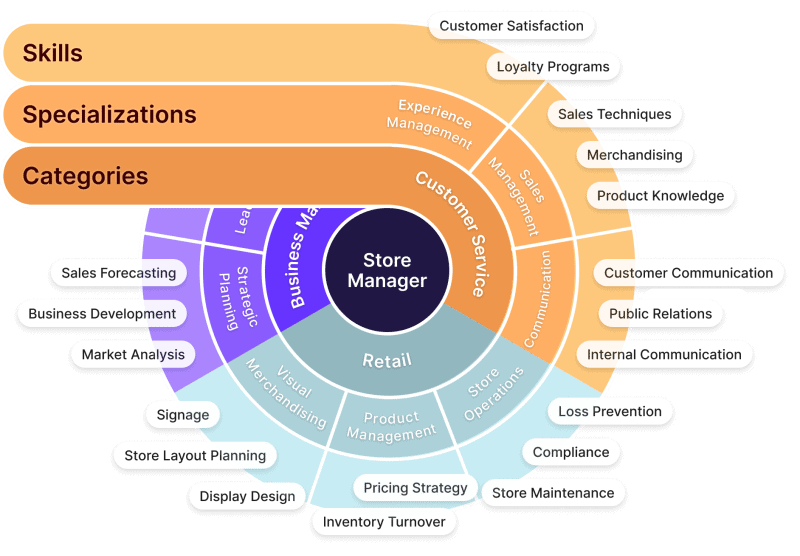When we start our career we usually pick a specific industry: automotive, consulting, tech, retail and so on. Our first job is sometimes something we pick in a very opportunistic way without thinking too much about the industry you are getting in.
Later on, after 3-4 years, people might find themselves wondering if there is something else out there that would be a better fit for their skills. Most of the times there is definitely something else out there, but it might be in another industry. That’s when things usually get more complicated: companies tend to hire people that have spent all their career – and in particular their last employment – in their industry. So if you are a consultant working for a big four firm, you will likely get more offers by similar companies, but it will be difficult to move to another industry (let’s retail) mostly because recruiters will not prioritize your application.
Today we see how you can move into a new industry and what are the steps you should consider.
Why moving to a new industry?
Even if you might think that being a software engineer at Audi or at Google is similar, the reality is that it’s not and every industry has its rules, salaries, products and processes. Enough to make your experience as software engineer completely different.
People move to different industries for better salaries, better career paths and general curiosity to see new customers and products. There are many examples of job roles that are poorly considered in one industry but are actually very well paid and regarded in others.
I personally think that moving to different industries gives people a better understanding of how to be effective with their skills and it usually comes with great adaptability and problem solving.
Last but not least: the skills that might be considered “standard” in one industry, might be actually very useful in another just because not so common among employees in that vertical.
Bring your skills to a new industry
The first concept to understand is that your skills are portable: if you have spent 3-5 years selling software, you can probably bring 80% of your sales skills to a new industry and still be very effective at your job. The same is true for software engineering or for operations managers, just to mention two examples. There are usually 60% or more of your skills that can be immediately applied to a new industry and can actually give you an advantage compared to people that have seen just one industry in their life.
Bringing your skills to a new industry means adapting to different processes, products and customers, or simply learning about the specific domain you will need to play in. While people tend to overthink this, in my experience this is actually easier than what you think and you have the ability of using a new approach to solve problems, something other veterans of that industry might not dare to do.
Being aware of your core set of skills is important to move into a new industry: from the initial presentation to first interviews, you will need to position your skills first and foremost and provide specific examples of how that would allow you to operate in the new industry.
How to apply for jobs in a new industry
If you try to apply to jobs in a completely new industry without any change to your CV and process, you will fail. That’s because companies tend to hire people that have been in that industry before and your resume will immediately be a mismatch.
So there is a bit of work to do before you can start. Let’s look at the steps in detail, one by one.
- Rebuild your CV using skills
This might sound difficult but it isn’t. Instead of building your CV as a series of titles and jobs you had, transform it into skills you gained or exercised extrapolating them from their industry context.
If you are a Director of Sales for a 200 people software company, you might use this as a title: “Sales management of a team of 15 with yearly quota of $20M selling to Fortune 1000 in automotive, consulting and retail” – this automatically highlights your skills as a manager in sales, with teams of a specific size and with specific quota carrying parameters. You could do more and say in the description that you have built 80% of that team yourself, and that would add a lot of great information for the recruiter. The industries you dealt with are also a good hint at your knowledge and flexibility selling (and understanding) different industries.
Again, the same could be done with any other type of skills. Think about a software engineer: you can actually describe your skills in each position without even mentioning that you were working for a tech company or a retail multinational.
2. Tell your story, not your history
This is something to consider while you rebuild your CV but also while you talk about yourself in the first interview. Your history is definitely connected to your previous industry, while what you can do and what you want to do is what matters, and that’s your story and how you got to the point of having this experience and skills.
In this part of the CV I would try to make a few very well defined examples that describe your personality and how you approach things. You will have time to make the same point in the video presentation, but creating consistency is important and the recruiter will believe you only if you provide specific and well described examples.
3. Make video and show your personality
Similar to what I’ve said in this article, you need to get noticed with things that 1% of candidates do.
This is true for any type of job application nowadays, but it’s even more true for someone that is trying to land a job in a new industry.
My suggestion is to record a 2-3 minutes video that shows your personality: you can tell why you applying for that specific position, what’s your experience and skills, and add anything else you think will convince the recruiter to select you for a call.
Don’t make this too general, include examples that show your values and approach to things. For instance, you might want to briefly tell how you have built a team of people and brought that team to make $1M in revenues. Highlight the challenges and give 1 single example of things you have done to go through them.
The video above tells you to explain why you are passionate about the industry or about the job you are applying for: I think it’s a great advice, but I would do a bit more and explain why your skills and your experience are a fit for that even if you haven’t seen that industry before.
Most job applications don’t ask for a video. It doesn’t matter: publish the video on YouTube as non-listed and include a link at the top of your application saying something “I thought a video could tell you more about myself and why I am applying for this role” and leave the link there.
4. Explain why you want to move into a new industry
Companies like people that have a specific plan and are able to explain it. Both in your resume and interviews, explain why you want to join that specific company and get into a new industry.
I personally think that starting from your skills and how you think about applying them to that industry is the most important thing to mention. You should also add context on what you know and researched about the industry and talk about what is attractive for you. If you are in sales, just for example, it might be the fact that you get to sell a new type of products with a different sale cycle or that you studied the average deal in that industry and you think you can do better using skills you acquired in other companies.
5. Study and read as much as you can about the new industry
I have done ton of interviews where I could tell immediately that the person in front of me did not do any research about our industry and company. It’s almost impossible to make a great impression when that happens.
If you are getting into a new industry, you should star reading and studying everything you can about it. A good list is:
- top companies in that industry (and so competitors of the company you are interviewing for)
- the language and core terms used in that industry
- products and services: what do companies do exactly and how?
- read others’ people LinkedIn and understand how they talk about their skills and products in that industry
- Wikipedia: read as much as you can about the industry, their history and everything else you can find.
- Reach out to people that work in that industry and ask them for advice on what to say/not to say or even better, ask them what companies care about and what are their key problems in general.
This would be particularly helpful in any interview, but if you are switching to a new industry it will show that you have done your home work…and it will allow you to ask questions using this info.
If you start with these steps there is a good chance that you will land a few interviews and ultimately land a job in a completely new industry.
January 25, 2023


